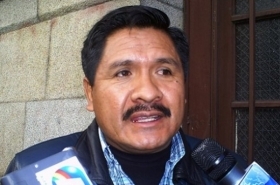According to Bolivia’s top drug official, there are no drug cartels inside the Andean nation but there are representatives from Colombian and Brazilian criminal groups.
“There is no presence of drug cartels,” Social Defense Deputy Minister Felipe Caceres (pictured) told La Razon. “Another thing is that there are emissaries from the cartels, from Colombia to Brazil, from Rio de Janeiro, from [Brazilian prison gang] the PCC, like [prison gang] the Red Command from Rio de Janeiro, who stockpile drugs.”
Caceres’ comments are an extension of an argument long made by the Bolivian government and the main anti-narcotics force, known as the FELCN: while there are foreign traffickers in Bolivia, no cartel has established a permanent, militarized presence inside the country.
InSight Crime Analysis
There is significant evidence that Colombian and Brazilian drug trafficking groups are active in Bolivia, but arguably none are powerful or sophisticated enough to be described as a “cartel.” This assertion is supported by Bolivia’s UNODC representative, who maintains that drug trafficking is “managed mostly by local groups or Brazilians, Europeans, Colombians.”
According to the former head of the FELCN, there have been cases of Mexican cartels investing in cocaine production through Colombian, Bolivian and Peruvian groups based in the country, Milenio reports. At the time, he also insisted there are no cartels inside the country.
The fact that Bolivian government officials are so cautious about definining what exactly constitutes “cartel presence” inside the country reflects how sensitive the issue is. With the US government insistent that Bolivia has not done enough to combat the drug trade, Bolivia government officials have to pick their rhetoric especially carefully, in order to fight the perceived stigma that the country “protects” narcotraffickers

